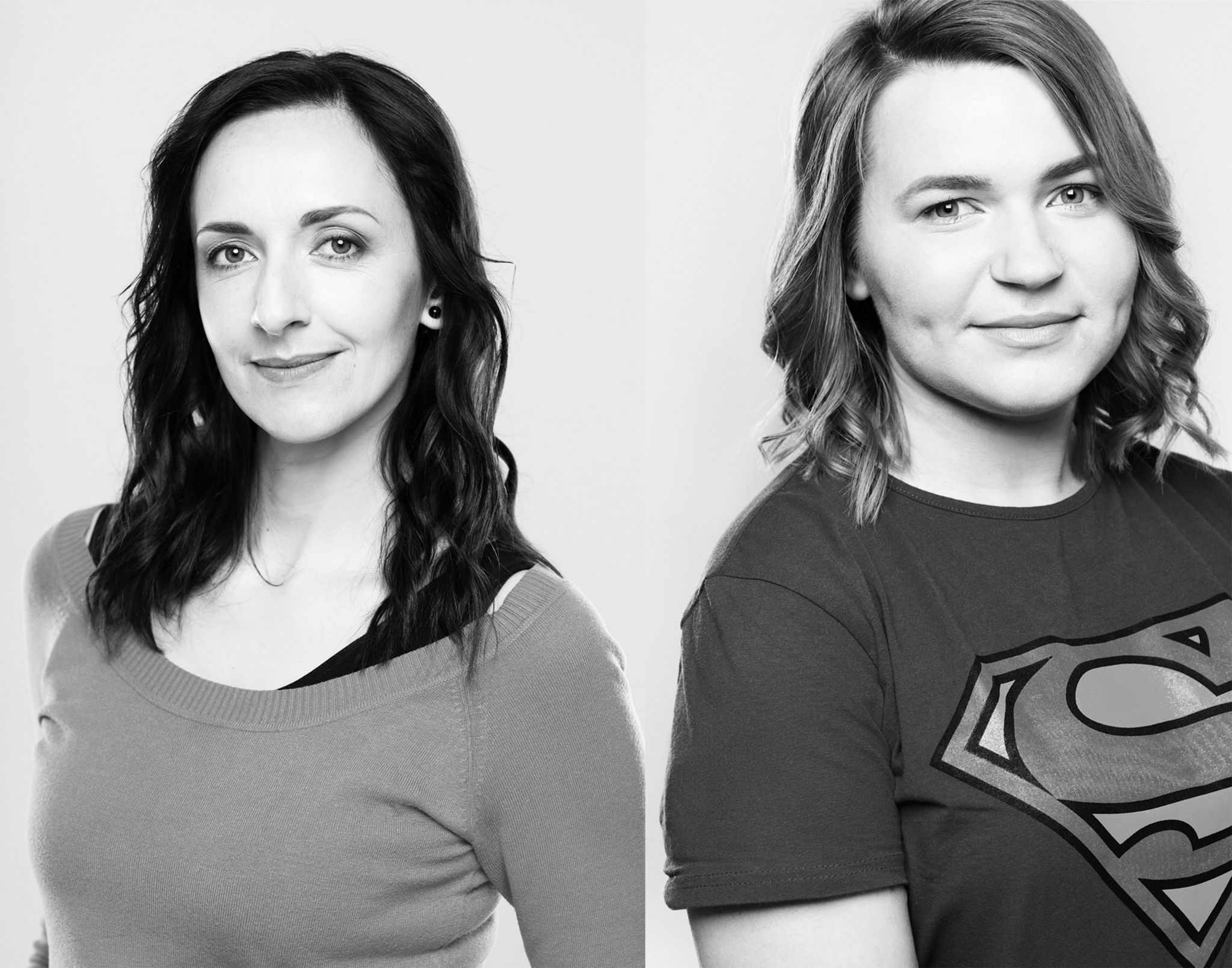Domestic violence: How photos are helping victims love themselves again
- Published

Confident, relaxed and hopeful women smile happily for the camera.
At first glance, the portraits could be depicting ordinary women from anywhere around the world. But Dasha Buben's photographs tell a different story.
The subjects of the photos are the survivors of domestic abuse in Belarus, where according to the United Nations Population Fund (UNFPA), three out of four Belarusians - both men and women - have experienced some form of violence at home.
Alina was one of them.
"I felt like I was a sexless body, that only exists to be beaten," says the 22-year-old.
In the past, she was forced to spend hours roaming the streets near her home to escape attacks by her younger brother.
"As a child, I had a traumatic brain injury and my brother used to repeat: 'what a shame you didn't die then'," says Alina.
"My mother would always stand up for my him. I was afraid he would hurt or kill me... Eventually I started hurting myself with a blade."
'Show there is a solution'
But one night in January last year, Alina did not return home. Instead she sought refuge at Radislava - a non-government organisation that provides temporary shelter to the victims of domestic abuse.
It was there that she got involved with the photo project I Survived.
The programme was set up by photographer Dasha Buben, who worked with a hairdresser and a make-up artist to try to help the victims of domestic abuse regain their self-confidence and feel stronger through a series of portraits.
"I wanted to show that there is a solution," says Dasha, a former editor of photography at a local magazine.
"To make women love themselves by looking at photographs, but also making them look as natural as possible."
She consulted a psychologist before the shoot, and tried to help the women feel comfortable. But this was easier said than done.
"Women came and turned away from the camera. They were scared. I had to shake their hands and talk to them to make them feel safe," says Dasha.
"I was embarrassed when they looked at me. Embarrassed of my awkward poses and my body, because I am slightly overweight," remembers Alina.
For her, opening up in front of a camera was a real challenge.
"In daily life I am an insecure, unattractive girl in a stretched jersey. [At the photo shoot] they did my hair and make-up and made me realise that I can also look pretty."
'Kindest eyes'
"I am not really like this. Less beautiful," says 43-year-old Elena looking at one of the photographs.
Elena left her hometown of Vileyka with her 11-year-old son after her partner had physically abused her. He also threatened to find and kill her.
Now living in Minsk, she works two jobs to make ends meet.
"At the beginning [of the photo shoot] I felt so tired I could only sit," she says. "But then found myself making some poses and enjoying it."
"The photographer said that I had the kindest eyes she'd ever seen. And then she started to cry. And so did I," recalls Elena.
Posting pictures as rehabilitation
There is currently no specific law against domestic violence in Belarus.
Since 2014, courts have been able to impose restraining orders against alleged perpetrators.
Figures from the country's first national helpline suggest more victims are coming forward.
But activists say many either avoid going to police or withdraw their complaints because they fear they will not be protected, or that the available punishment would be ineffective.
Creative projects such as these photo shoots help make the problem more visible, says Olga Gorbunova, a director at Radislava who has spent 15 years researching the issue.
She says social media can also play a significant role in the rehabilitation process; victims of domestic abuse post pictures from the photo shoot and gain dozens of comments and "likes".
"No matter how hard our psychologists worked with the victims, spontaneous and sincere reactions from the Facebook users often had a stronger and more positive impact on women," says Olga, who herself was subjected to family violence when she was a child.
"To me this was a real discovery."
Still much work ahead
Dasha says this photography project was the hardest in her 13-year-long career. At the end, she cut her hair very short "to release the stress and negative emotions".
"The aim with making the portraits was, first of all, to offer psychological therapy and a process of self-acceptance, along with a chance to develop self-confidence," says the photographer.
"But there is still much work ahead."
Alina feels she still needs to do more to improve her self-image.
"I can accept my body but not completely. And now I have to find and accept who I am," she says.
Her short-term goal is to become a tattooist - not the least to paint over a self-inflicted scar on her body, which she now deeply regrets.
"But this is just a hobby to make some cash," she says.
"My real dream is to become a psychologist to help domestic abuse victims like me."
.
- Published28 February 2018
- Published1 March 2018
- Published22 March 2018